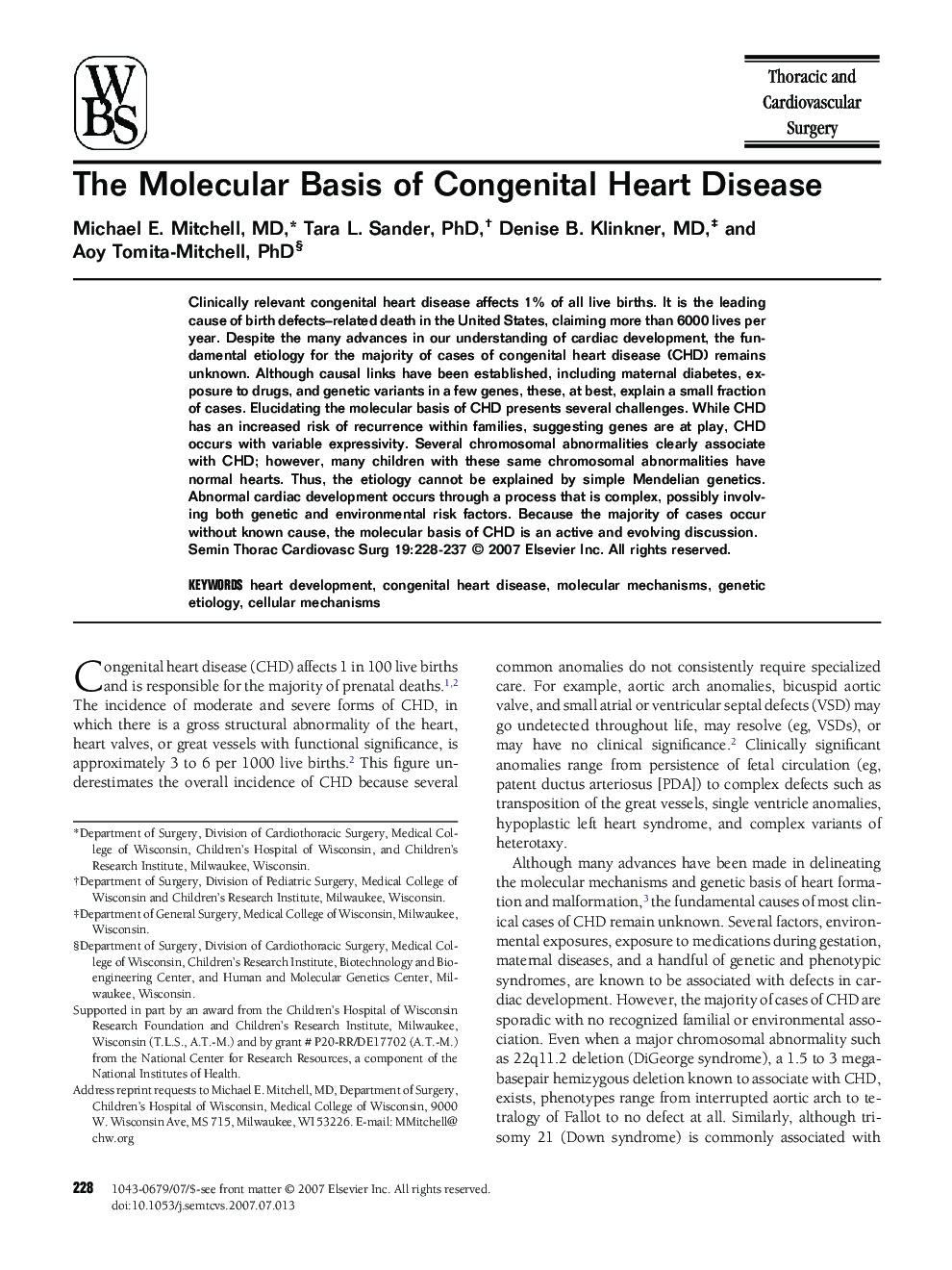| Article ID | Journal | Published Year | Pages | File Type |
|---|---|---|---|---|
| 3025712 | Seminars in Thoracic and Cardiovascular Surgery | 2007 | 10 Pages |
Clinically relevant congenital heart disease affects 1% of all live births. It is the leading cause of birth defects–related death in the United States, claiming more than 6000 lives per year. Despite the many advances in our understanding of cardiac development, the fundamental etiology for the majority of cases of congenital heart disease (CHD) remains unknown. Although causal links have been established, including maternal diabetes, exposure to drugs, and genetic variants in a few genes, these, at best, explain a small fraction of cases. Elucidating the molecular basis of CHD presents several challenges. While CHD has an increased risk of recurrence within families, suggesting genes are at play, CHD occurs with variable expressivity. Several chromosomal abnormalities clearly associate with CHD; however, many children with these same chromosomal abnormalities have normal hearts. Thus, the etiology cannot be explained by simple Mendelian genetics. Abnormal cardiac development occurs through a process that is complex, possibly involving both genetic and environmental risk factors. Because the majority of cases occur without known cause, the molecular basis of CHD is an active and evolving discussion.
